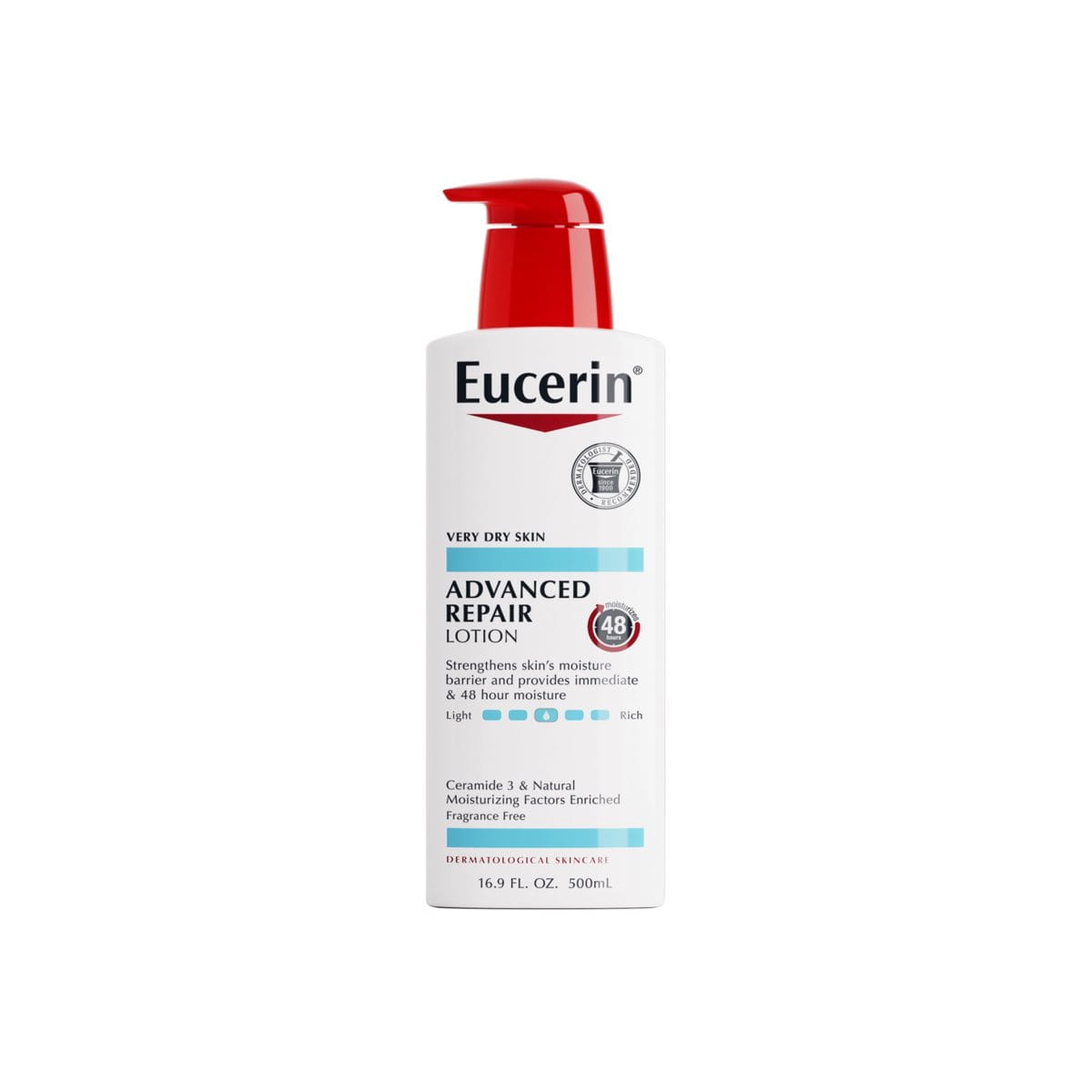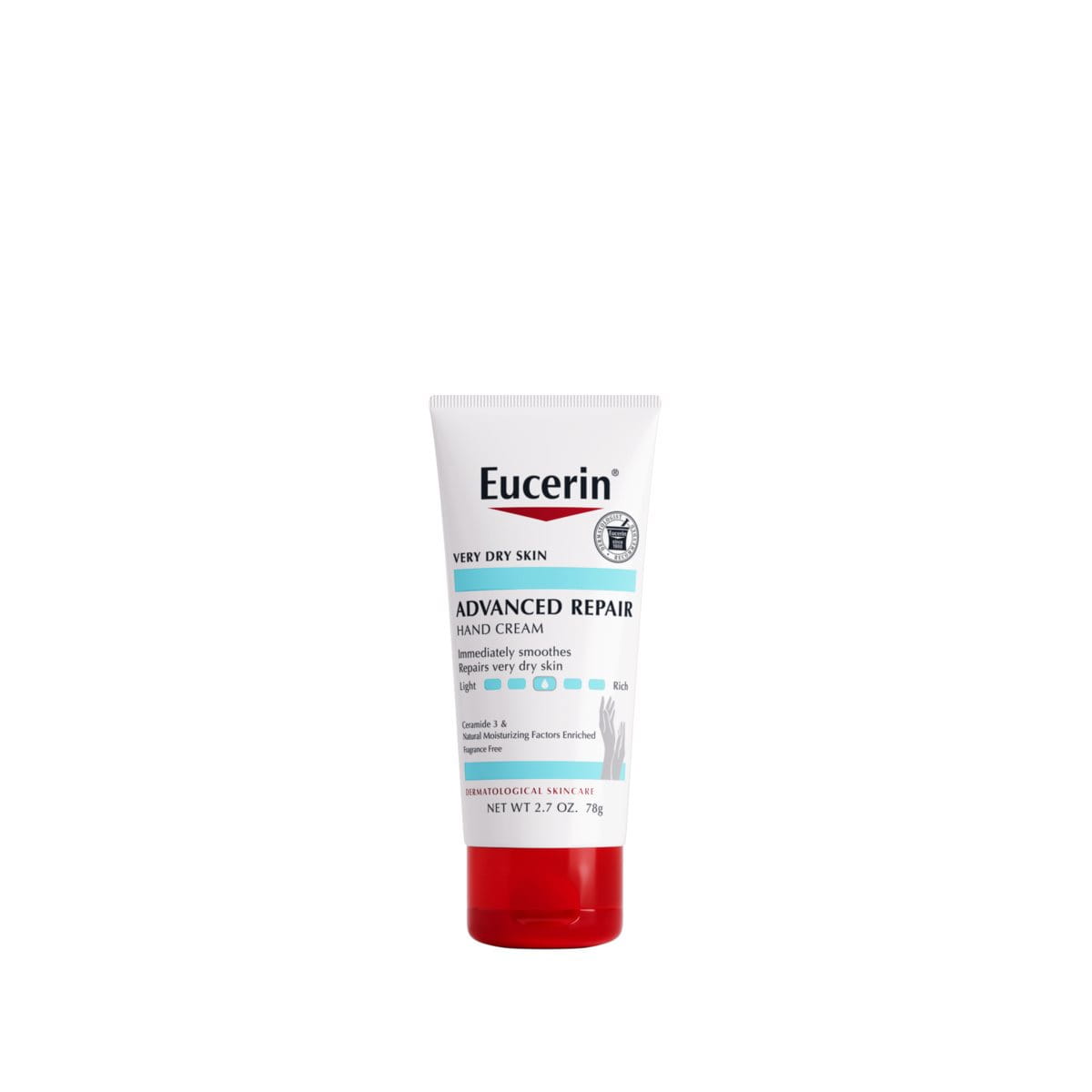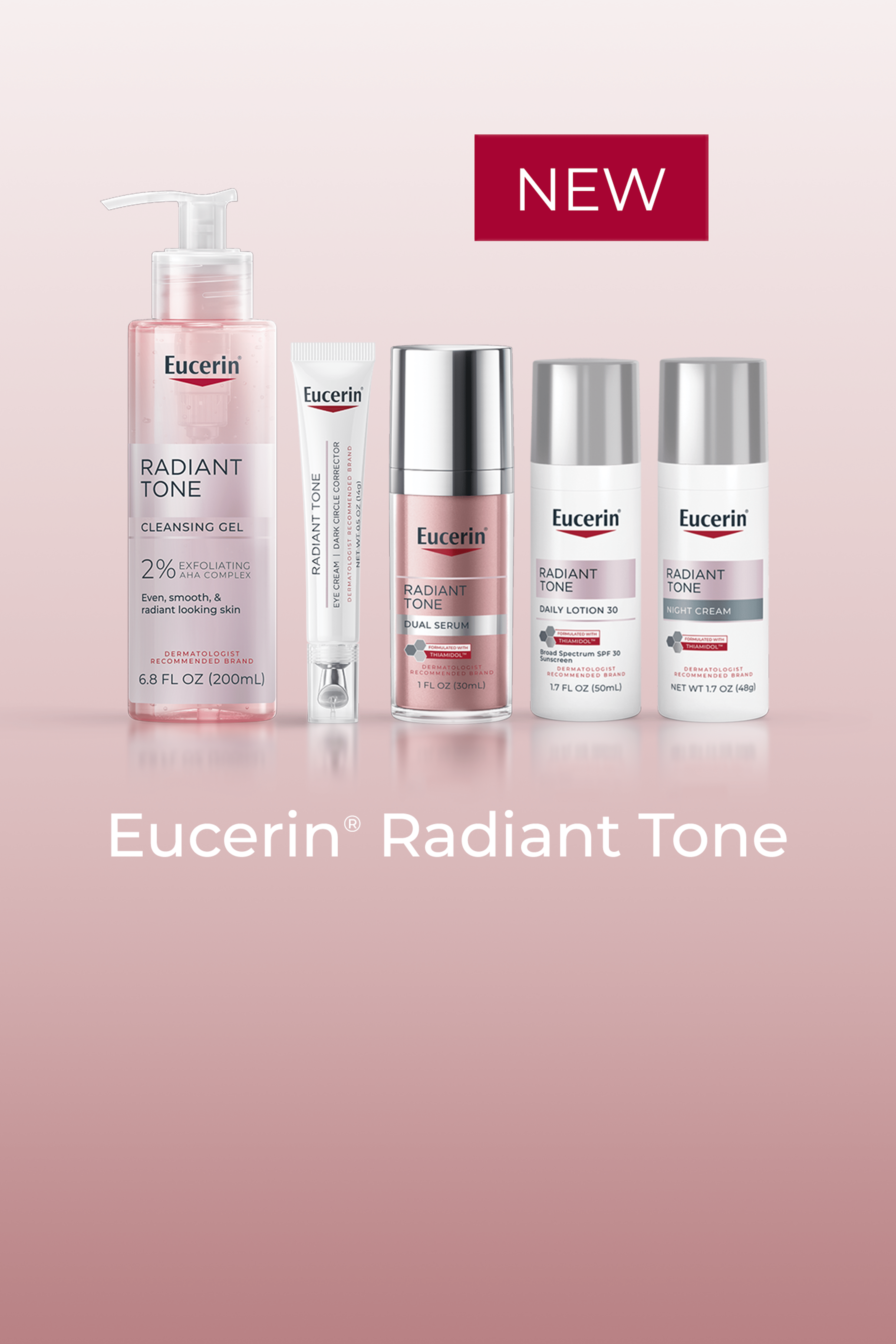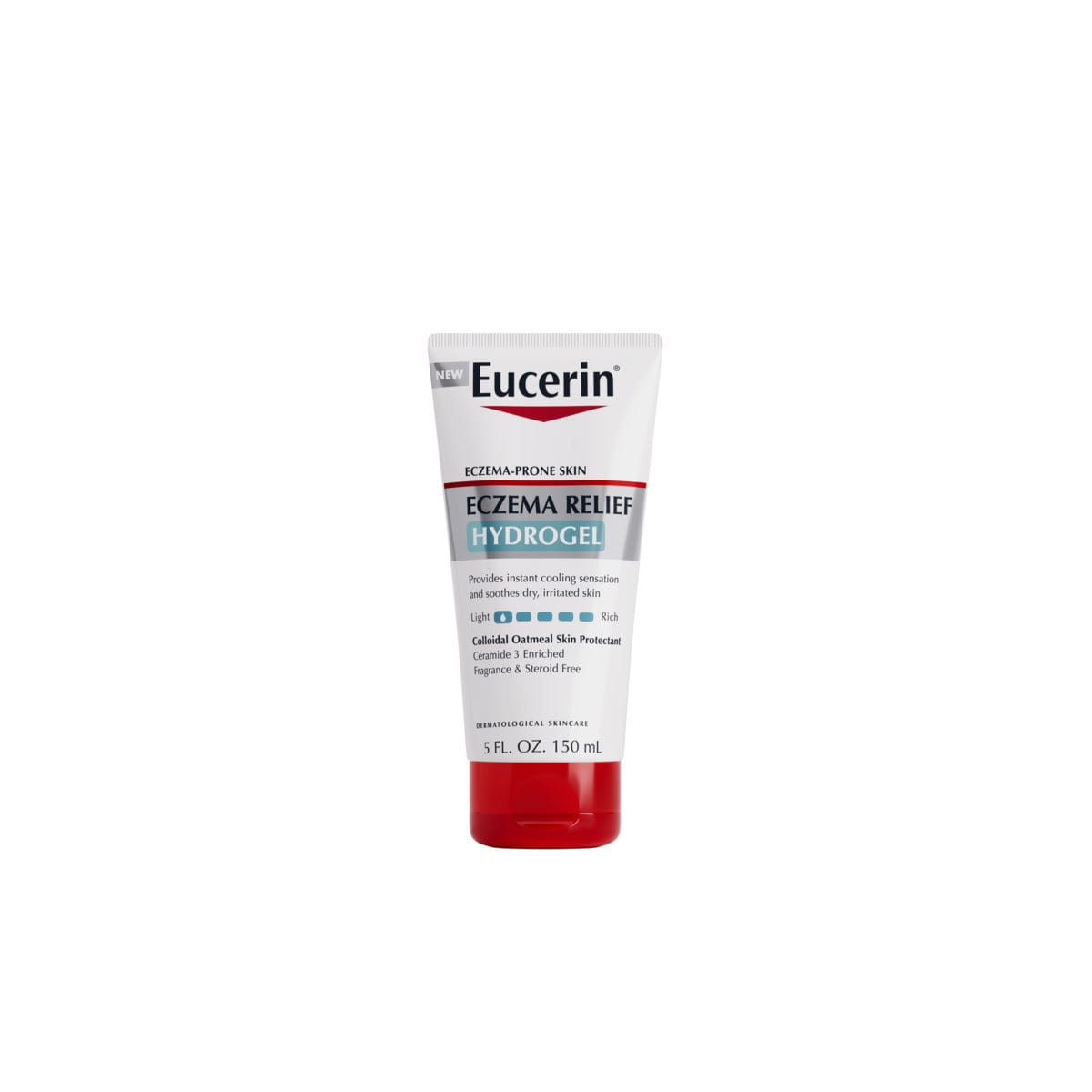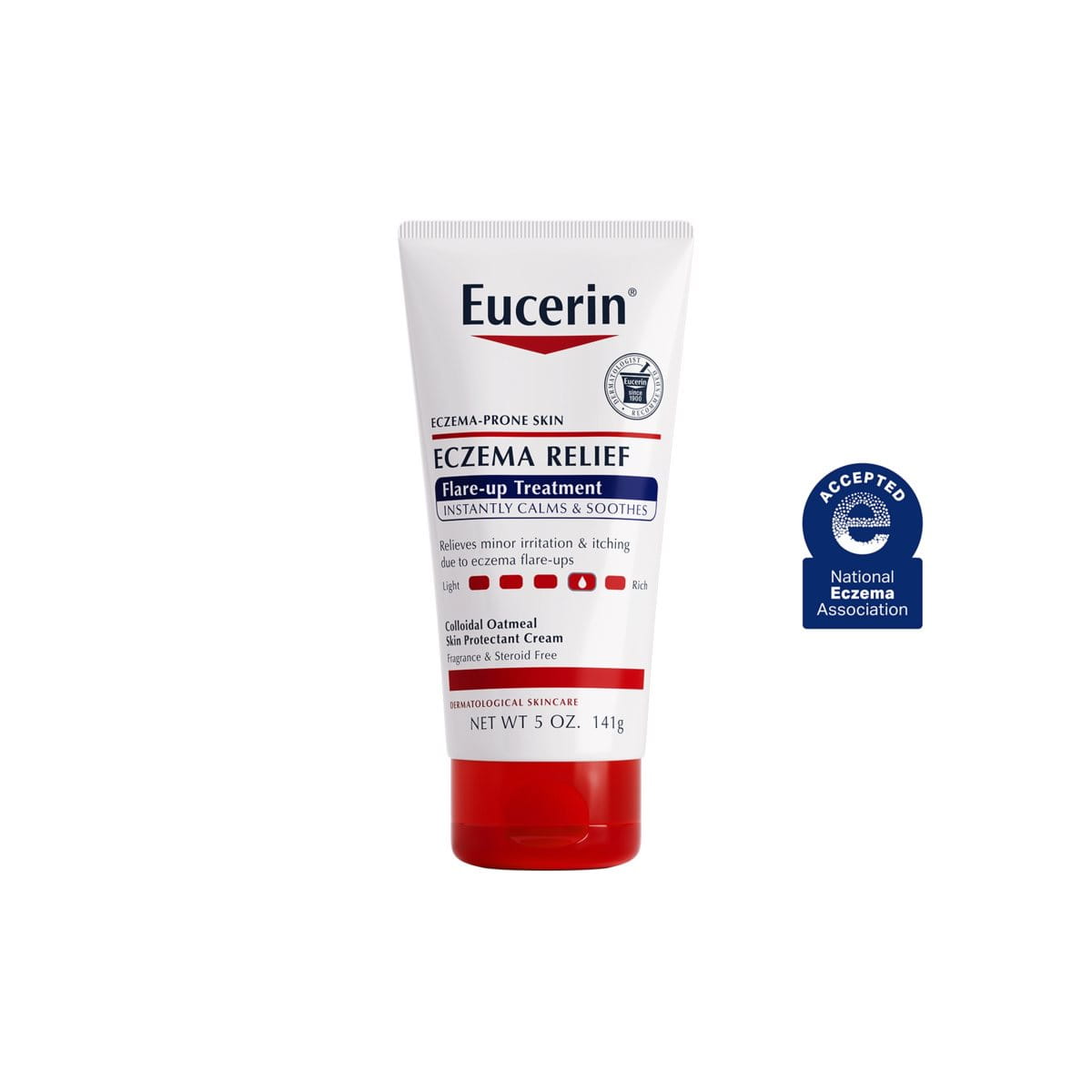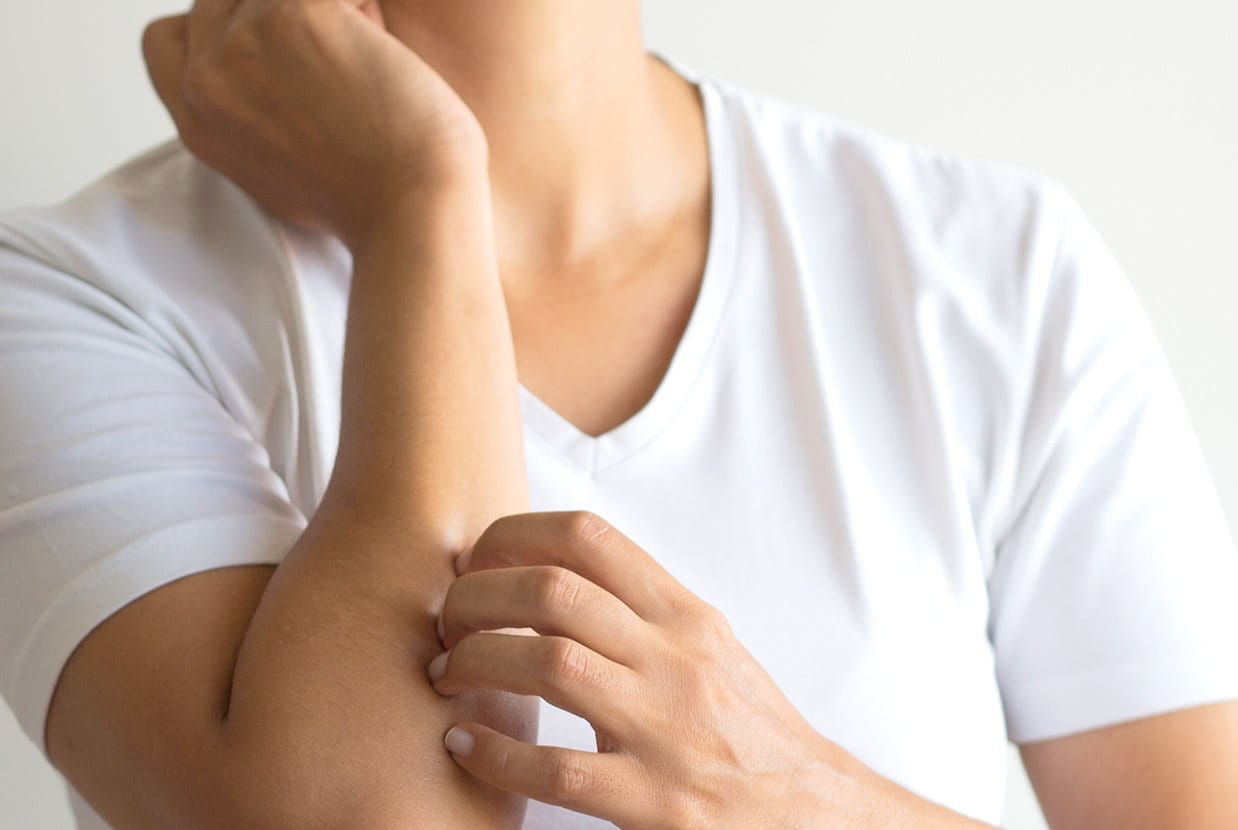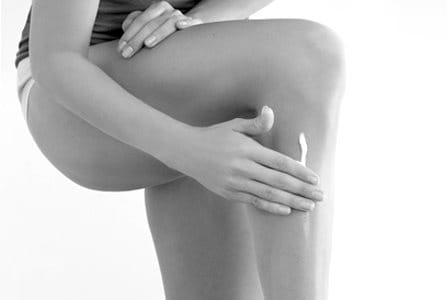This article explains how to recognize the symptoms of facial eczema and looks at the possible causes and triggers. It offers suggestions on how to care for eczema-prone skin on a daily basis, as well as advice on how to soothe and calm your skin during flare-ups.
This article explains how to recognize the symptoms of facial eczema and looks at the possible causes and triggers. It offers suggestions on how to care for eczema-prone skin on a daily basis, as well as advice on how to soothe and calm your skin during flare-ups.
What is eczema on the face?
Adult facial eczema can appear on the scalp, forehead, cheeks, around the mouth and eyes, on the eyelids, and even in and around the ears2.
Symptoms of eczema on the face
Symptoms of facial eczema can vary from mild dryness, irritation and itchiness to flaking and intensely itchy skin3. You may experience eczema on the neck, forehead, ears, and other parts of the face. Eczema has stages where the condition is aggravated known as eczema flare-ups called the acute phase, and periods of time in between flare-ups called the non-acute phase where the skin is calmer4.
The symptoms of facial eczema are similar to those of eczema in other areas, such as the hands:
- Skin becomes dry, itchy and irritable
- Blotchiness
- Small, rough bumps
- Flaky skin1
Scratching the itch only makes symptoms worse, and the damaged skin can become more irritated and start to thicken. If you are experiencing any of the following more severe eczema symptoms on your face, be sure to contact a healthcare professional for guidance.
- Swelling
- Red or brown plaques
- Skin feeling hot or a burning sensation
- Crusts or pus
- Itchy blisters or cracks resulting in weeping or bleeding
What causes eczema on the face?
Other external aggressors that may trigger eczema flare ups include harsh facial cleansers, household products like soap, synthetic fibers, and certain makeup products1. One person's eczema could be triggered by a fragranced product, but the same product may not cause a reaction for somebody else. This is why it’s important to speak to a doctor about your facial eczema.
How to help treat the symptoms of eczema on the face
Prior to finding an appropriate treatment, your health care practitioner must provide you with an accurate diagnosis of your symptoms to check that you or your child do actually have eczema rather than a different skin condition. By being aware of the type of eczema you have, you can apply the proper treatment for it.
Eczema on face care tips
Choosing an eczema face cream
*Please consult your child or baby’s pediatrician prior to introducing any new product to their skin.
*Please consult your child or baby’s pediatrician prior to introducing any new product to their skin.
Eucerin Eczema Relief Flare-Up Treatment instantly soothes itchy, irritated skin on the face and body , and has mild, cool sensation when applied. Fragrance- and steroid-free, with Colloidal Oatmeal (skin protectant), and enriched with Ceramide-3, and Licochalcone A, this skin protectant eczema cream is appropriate for use on infants as young as 3 months* and helps relieve eczema symptoms with regular use (twice daily for 2 weeks).
* Please consult your child or baby’s pediatrician prior to introducing any new product to their skin.
Facial eczema in babies and children
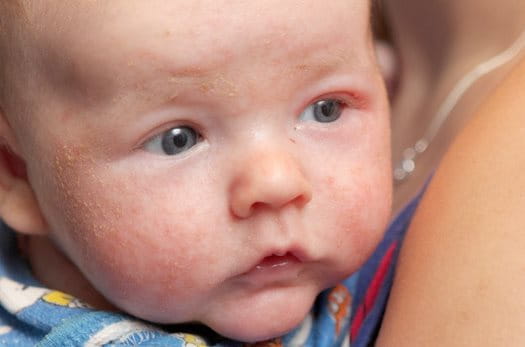
Symptoms differ from person to person, from season to season, and even from day to day. The disease has two distinct phases: the flare-up, or acute phase, when the skin is at its most itchy and irritable, and the calmer period between flare-ups, the non-acute phase.
Eczema on the neck
How to help manage facial eczema flare-ups by avoiding triggers
Limit exposure to irritants
Gentle cleansing & avoiding hot showers
Sun protection
Makeup
Making facial eczema manageable with Eucerin
View our full collection of Eczema Relief products.
The information provided herein is not intended to be medical advice. Nor is it intended to treat the underlying skin disease or condition. The information is provided solely to:
- Moisturize, soften and smooth dry skin
- Improve the appearance of the skin
- Achieve healthier-looking skin
Sources
- Eczema on Face: Symptoms, Causes, Types & Treatment. Cleveland Clinic. https://my.clevelandclinic.org/health/diseases/24604-eczema-on-face.
- Eczema on the face and neck | Eczema Foundation. Pierrefabreeczemafoundation.org. https://www.pierrefabreeczemafoundation.org/en/understanding/areas-affected-by-eczema/face.
- blue_admin. Facial eczema. National Eczema Society. https://eczema.org/information-and-advice/types-of-eczema/facial-eczema/.
- NHS . Overview - Atopic Eczema. NHS. https://www.nhs.uk/conditions/atopic-eczema/.
- Itching and Scratching How to Control Eczema-Related Itching Contents. https://eczema.org/wp-content/uploads/Itching-and-Scratching-booklet-2021.pdf.
- NHS . Overview - Atopic Eczema. NHS. https://www.nhs.uk/conditions/atopic-eczema/.
- Baby Eczema: Causes & Treatment. Cleveland Clinic. https://my.clevelandclinic.org/health/diseases/23408-baby-eczema.
- Can you get eczema as an adult? www.aad.org. https://www.aad.org/public/diseases/eczema/adult/can-get.

